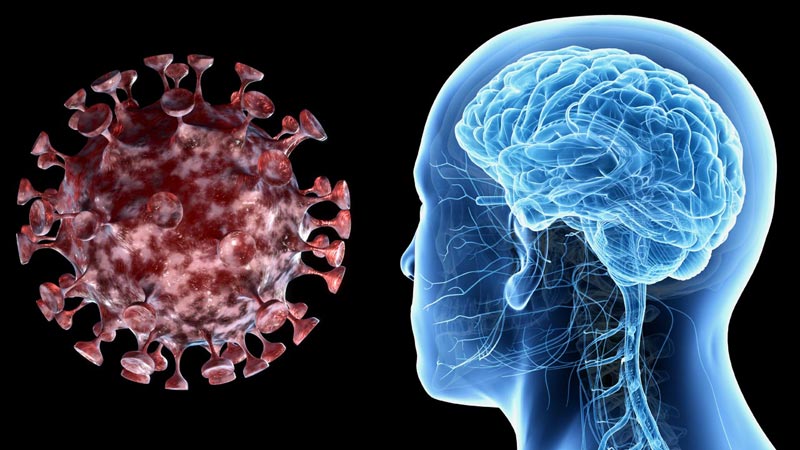Survey finds ischaemic stroke and altered mental status as most common neurological complications in severe COVID-19 cases
 Brain damage, psychiatric problems reported in severe coronavirus cases, study says (Miami Herald):
Brain damage, psychiatric problems reported in severe coronavirus cases, study says (Miami Herald):
A new study shows that severe cases of the coronavirus can cause strokes and other neurological issues, or an “altered mental state” for patients.
The research, published in the British medical journal Lancet Psychiatry, looked at a small pool of severe COVID-19 cases. The researchers found more than 100 patients who had either neurological or psychiatric problems from the coronavirus.
… “Many important questions remain for neurologists and psychiatrists,” the researchers said. “How common are neurological and psychiatric complications in patients with COVID-19? What proportion of neurological and psychiatric complications affect the (central nervous system) versus the peripheral nervous system, and are novel syndromes emerging? And who is most at risk?”
The researchers found 77 COVID patients in British hospitals who had either a stroke or a brain hemorrhage. The study says 39 patients had an “altered mental status.” Ten of them developed a new psychosis and six had symptoms similar to dementia, according to the study.
The Study:
Neurological and neuropsychiatric complications of COVID-19 in 153 patients: a UK-wide surveillance study (Lancet Psychiatry):
- Background: Concerns regarding potential neurological complications of COVID-19 are being increasingly reported, primarily in small series. Larger studies have been limited by both geography and specialty. Comprehensive characterisation of clinical syndromes is crucial to allow rational selection and evaluation of potential therapies. The aim of this study was to investigate the breadth of complications of COVID-19 across the UK that affected the brain.
- Interpretation: To our knowledge, this is the first nationwide, cross-specialty surveillance study of acute neurological and psychiatric complications of COVID-19. Altered mental status was the second most common presentation (Note: after ischaemic stroke), comprising encephalopathy or encephalitis and primary psychiatric diagnoses, often occurring in younger patients. This study provides valuable and timely data that are urgently needed by clinicians, researchers, and funders to inform immediate steps in COVID-19 neuroscience research and health policy.


